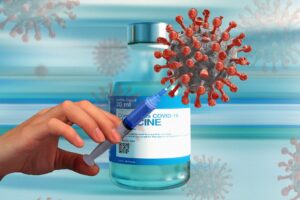
Phenylephrine is a common ingredient in many over-the-counter and cold medications, including Benadryl Allergy Plus Congestion, Sudafed PE, Tylenol Cold and Flu Severe Day & Night, and Vicks Sinex. But, these products could soon disappear from stores altogether.
Millions of people use these medicines each year, but now the FDA’s advisory committee claims that they are ineffective in tablet form and recommends that they be removed from the market.
According to the panel of scientists, phenylephrine isn’t effective against allergy symptoms after its effectiveness has been queried for years. However, the committee confirmed that despite being ineffective, it’s still considered safe to use as there were no doubts about its safety.
The two-day conference involved panel members reporting their findings about the ingredient’s effectiveness before giving recommendations. The products generated almost $2 billion last year in total, but the panel members said their findings show that phenylephrine is not effective for allergy symptoms when compared to a placebo, both at high and standard doses.
Following the committee vote, which was unanimous, the FDA said it would consider the advice and could reclassify phenylephrine from Generally Recognized as Safe and Effective (GRASE).
The agency didn’t give any timeline and will give stakeholders the chance to comment and provide any additional data that could impact the decision on the future of the drug. While the process is underway, companies can still market the products as normal. If the FDA follows the committee’s advice, they would need to reformulate the products or remove them from sale.
Changing phenylephrine’s classification could end up being very costly for manufacturers. While some medications could vanish altogether, some companies, including Beyar and Johnson & Johnson have said they would reformulate them to meet the FDA’s requirements.
Phenylephrine was approved in the 1970s. It works by shrinking dilated blood vessels in the nose to relieve sinus and nasal congestion. Some scientists say that this is ineffective when it’s taken orally due to the way the body metabolizes the active ingredient, although it could be effective when taken in other ways.



